GET IN TOUCH
- Please wait...
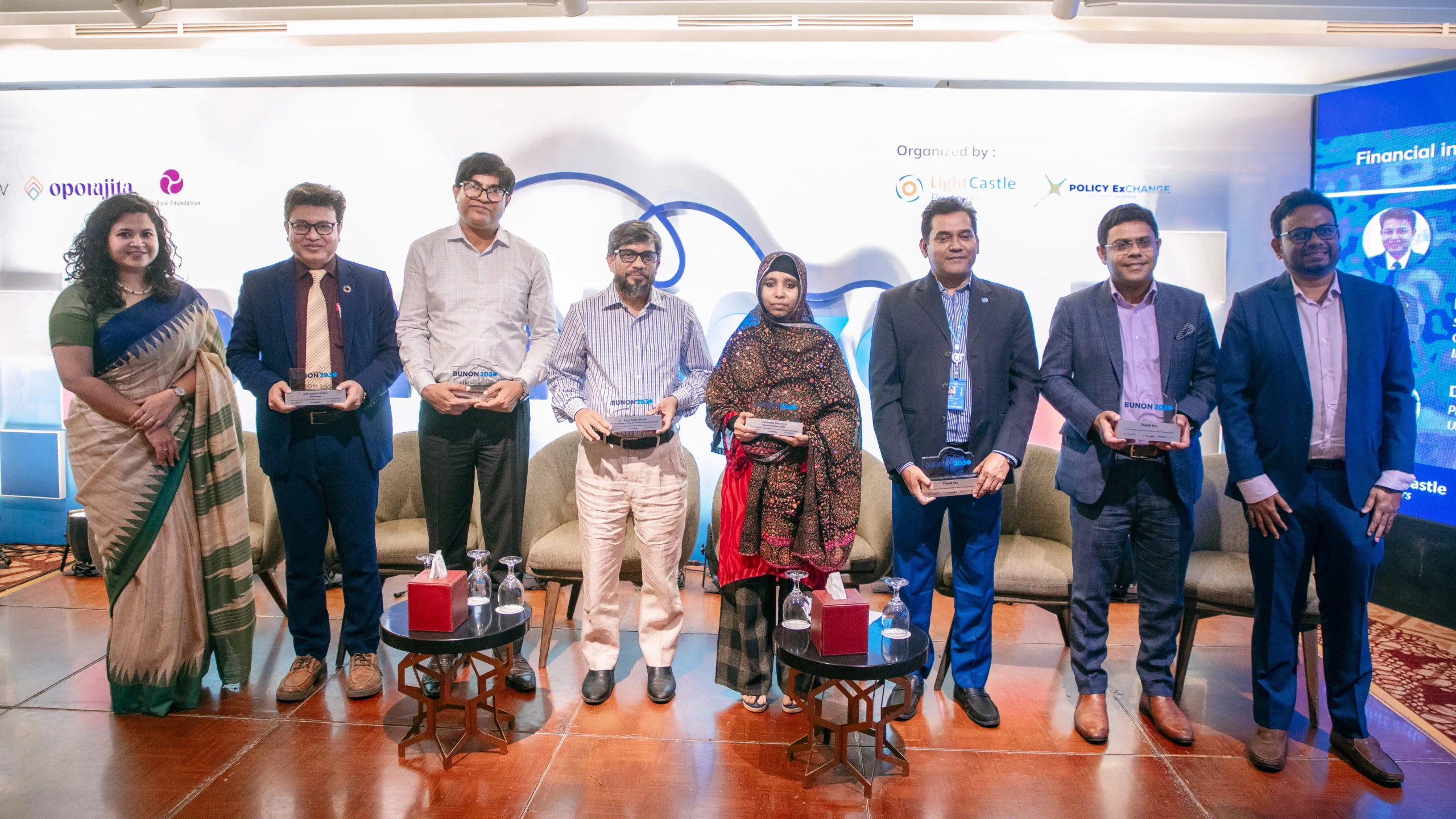
LightCastle Partners, in collaboration with Policy Exchange Bangladesh, orchestrated a pivotal dialogue event on February 22, 2024, in Dhaka, aimed at uniting key stakeholders in the apparel industry to collaboratively enhance worker well-being, particularly for female workers. This event exemplifies LightCastle’s commitment to fostering collaboration within the apparel ecosystem through research, private-sector engagement, and advocacy initiatives.
The dialogue event brought together industry leaders, policymakers, development partners, innovators, and academics to explore the complexities of upcoming transformations in the apparel industry. The objectives of the dialogue included gaining insights into the importance of worker wellbeing and its connection to productivity, exploring opportunities for reskilling and upskilling workers to future-proof them from automation risks, and addressing concerns related to the upskilling and career advancement of female apparel workers. The event, titled ‘Embracing Wellbeing: Nurturing the Future of Apparel Workers in the Industry,’ was a part of the Bunon 2030 program.
This initiative is dedicated to empowering Bangladeshi women garment workers in the face of challenges such as increasing automation, geopolitical turmoil, circularity, and decarbonization.
Bunon 2030 is a component of the collective impact initiative of H&M Foundation’s “Oporajita: Collective Impact on the Future of Work in Bangladesh” project, managed by The Asia Foundation.
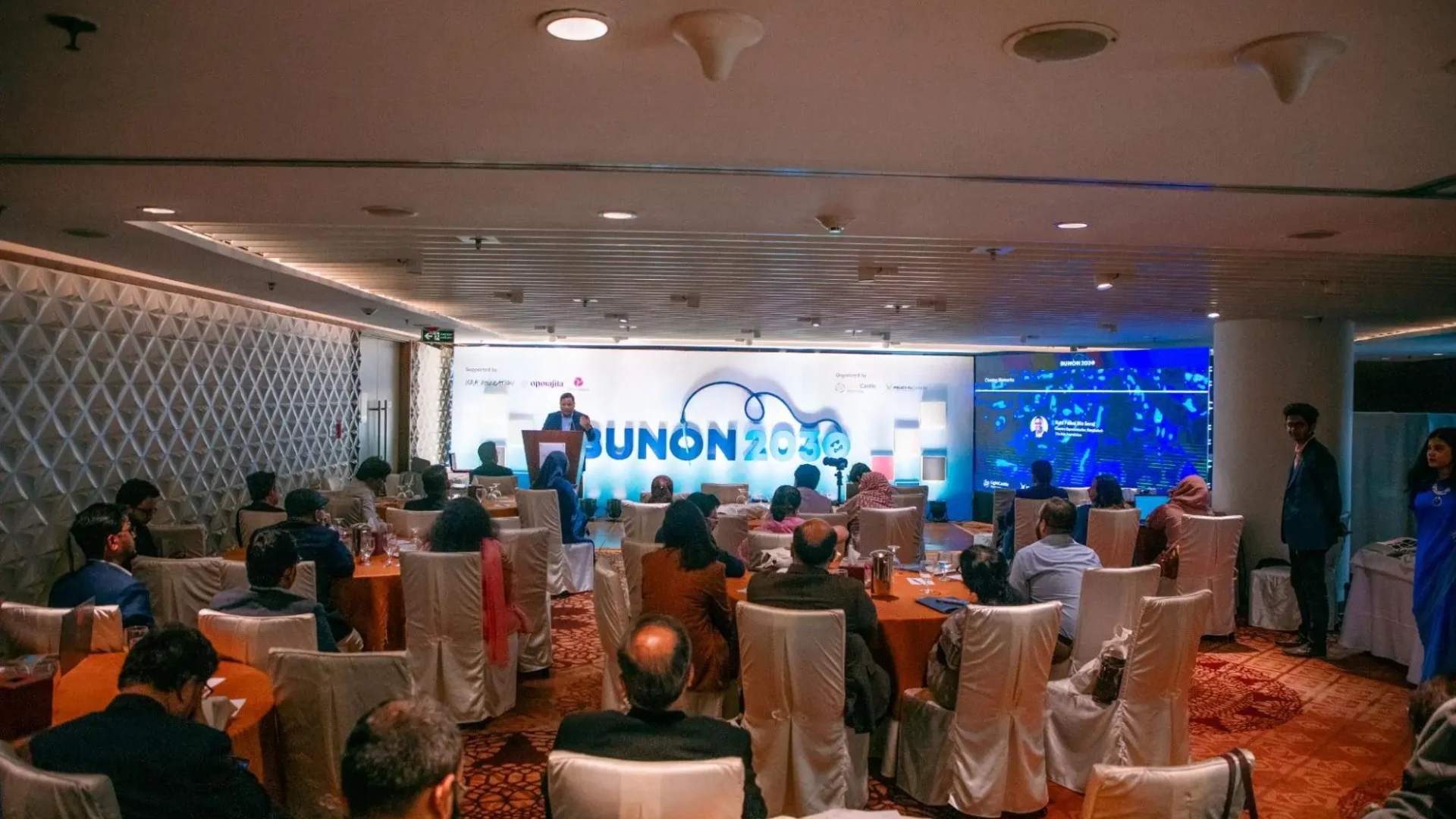
Based on 2023 data from the Export Promotion Bureau, the apparel sector remains a cornerstone of Bangladesh’s economy, contributing significantly to 84.5% of the country’s exports and employing approximately 49 lakh workers, with 60% of them being women.
Despite the pivotal role played by women in this industry, the effective implementation of their rights faces numerous hurdles. The competitive dynamics of the market and the increasing impact of automation in the garment sector further compound these challenges, instilling concerns among workers about potential job losses. This raises critical questions about the need for a comprehensive examination of the rights and well-being of women working in Bangladesh’s apparel industry amidst evolving economic and technological landscapes.
Discussions during the dialogue underscored the necessity of a concerted effort to enhance the productivity and well-being of workers for sustainable industry growth. This requires a focus on improving the health of women workers, promoting financial inclusion, and facilitating skills development to align with the industry’s changing landscape. A comprehensive strategy addressing these aspects is essential to create a resilient and equitable environment for women in the apparel sector.
The event kicked off with opening remarks from Ainee Islam (Program Director, The Asia Foundation), Zahedul Amin (Co-Founder and Director, LightCastle Partners), and Dr. M Masrur Reaz (Chairman, Policy Exchange Bangladesh).
Zahedul Amin emphasized a shift in perspective, stating, “We should look at labor as a productivity center rather than a cost center. Our country is ahead of India and Pakistan in terms of women engagement; we should start comparing ourselves with the top countries.”
Ainee Islam underscored collaboration as the main focus of the program, stating, “Oporajita’s primary focus is to include the primary actors, women workers, inclusivity. We are trying to make them more competitive in the RMG sector through strategic initiatives.”
Furthermore, Dr. M Masrur Reaz highlighted the pivotal role of Bunon 2030, stating, “The future work of Bunon 2030 will determine whether Bangladesh can achieve inclusive growth with 4 million direct employment, a primary factor for driving consumption in our economy.”
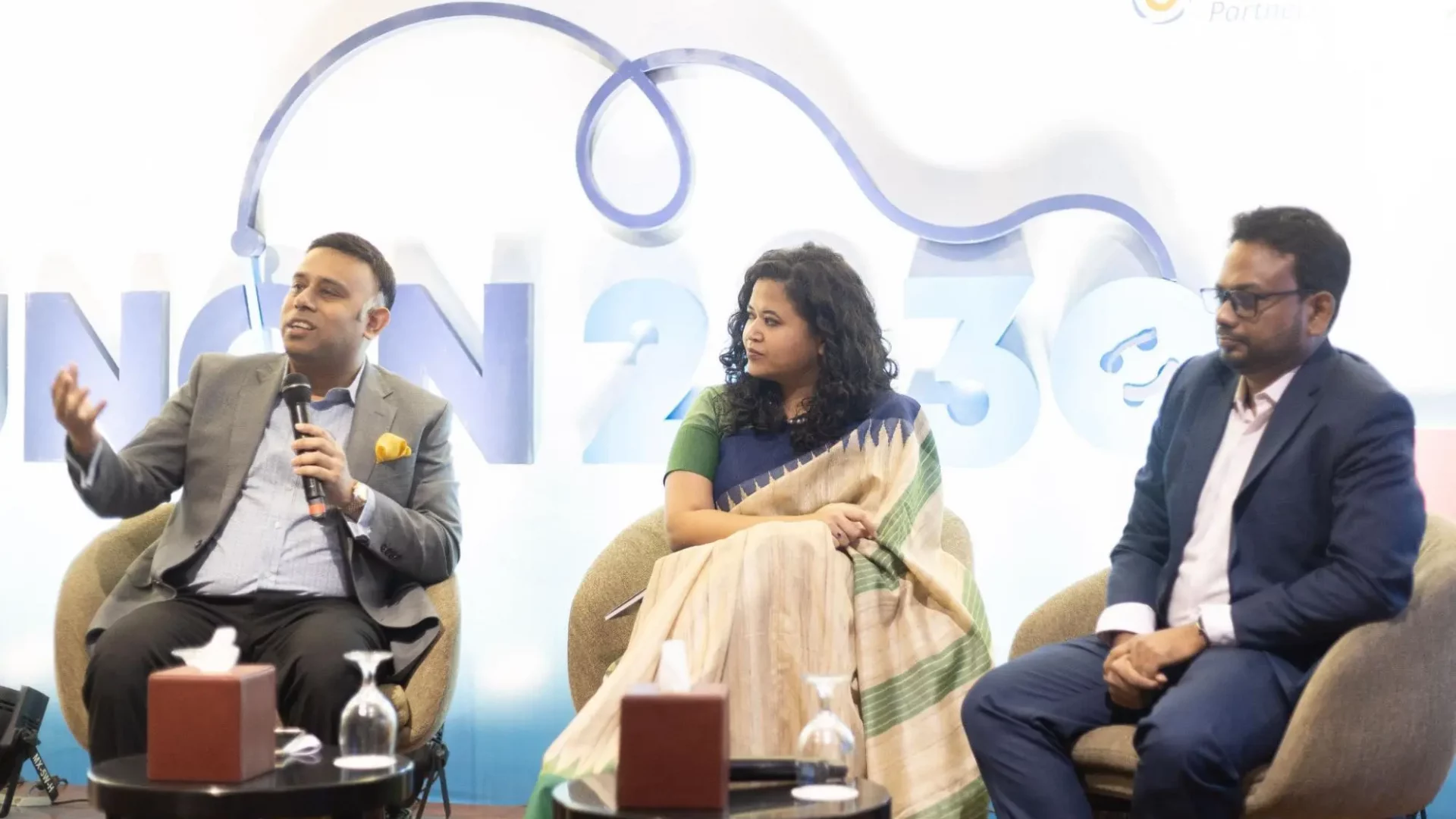
Following the opening remarks, Dr. Julia Ahmed, an independent consultant, shared insights and moderated a discussion on the health of women workers in the garment sector, safe work environments, and social rights.
The panel included Amer Salim (Director, Knit Asia), Sirajul Islam Rony (President of Bangladesh National Garments Workers Employees League), and Dr. Mehruna Islam Chowdhury (Business and Human Rights Specialist, UNDP).
The discussion highlighted the global shift toward automation in the garment industry and acknowledged the challenges for workers. The panelists called for initiatives that enhance skills, establish equitable pay practices, and empower women for leadership roles in the industry.
Key focal points included hygiene concerns, inadequate wages, and efforts to retain workers amid automation in the Ready-Made Garment (RMG) sector. Dr. Mehruna Islam Chowdhury emphasized the need for transparency in the supply chain, advocating for the disclosure of working conditions and worker wages. Enhancing women workers’ skills was identified as crucial for their advancement in the industry.
The panelists emphasized the importance of awareness about fundamental rights, UN Women’s initiatives, and addressing issues in smaller-scale factories, including sanitation and nutrition. They called for cross-collaboration among stakeholders to achieve these goals.
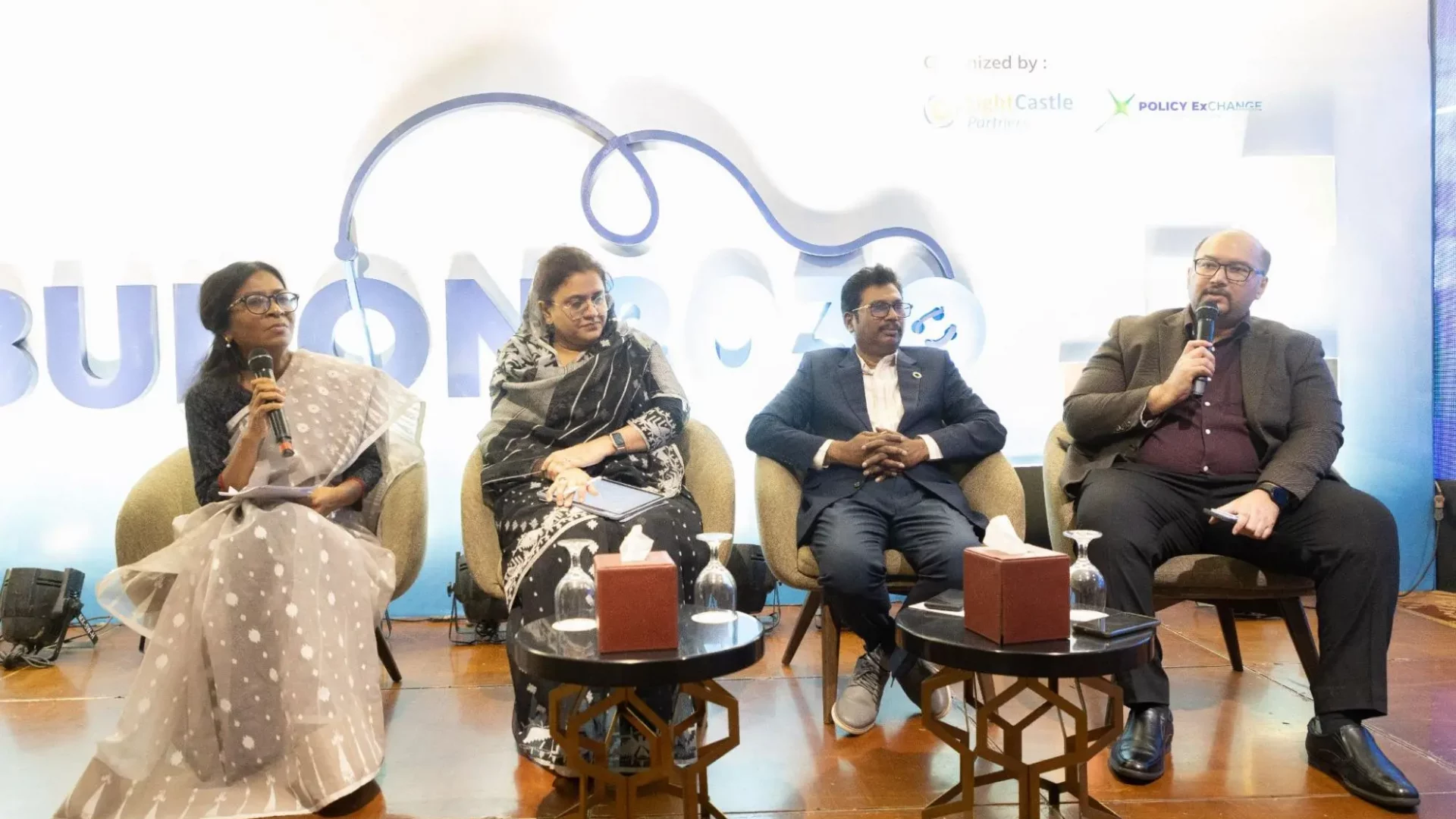
Following that, Md. Jamal Uddin, an RMG expert, moderated a discussion on ‘financial inclusion, upskilling, and reskilling of garment workers.’ The session included Mohammad Shamsul Haque (Senior Enterprise Advisor, International Labor Organisation), Tahmina Rahman (General Secretary, Bangladesh Apparel Workers Federation), Dr. Syed Abdul Hamid (Professor, Institute of Health Economics, University of Dhaka), Hedayatul Basher (Head of Corporate Sales, Nagad), and Engr Ayub Ali Sarker (Senior Specialist, TVET & Skills Development, UCEP).
The discussion highlighted a multifaceted approach to worker well-being in the Ready-Made Garment (RMG) sector. Panelists highlighted the need for Initiatives including prioritizing worker well-being in training, collaborating for career development, addressing challenges posed by automation, implementing financial literacy programs, and introducing incentive-based initiatives for enhanced productivity. They also emphasized that efforts are being made to educate women about digital banking, integrate climate change awareness, and provide training on market wage rates, but there is a need for more initiatives to improve overall awareness.
Health insurance and pension schemes, introduced by some industry leaders to enhance worker welfare, were mentioned, but their adoption is still poor in small and mid-sized factories. Additionally, the panelists highlighted the further need for skill development programs, industry collaboration, and the necessity for computer soft skills training.
The third and final panel discussion was moderated by Dr. M Masrur Reaz on developing a productive workforce for a competitive RMG sector. Panelists for this session included Asif Ibrahim (Vice Chairman, Newage Group), Md Fazlul Haque (Managing Director, Plummy Fashion Ltd), Ferdaus Ara Begum (CEO, BUILD), Dulal Krishna Saha (Former Executive Chairman, NSDA), and Md Selim Hossain (Deputy Secretary, Ministry of Commerce).
The discussion highlighted the imperative link between worker productivity and the success of the Ready-Made Garment (RMG) sector. Challenges such as disparities in training and skill gaps were discussed, with Dulal Krishna Saha mentioning that these challenges are being addressed through initiatives like the National Skills Development Authority (NSDA) focusing on demand-driven training. Furthermore, Educational challenges, gender disparities, and the need for policy reforms to support retention and export diversification were emphasized.
The panelist called for collective strategies for improving worker well-being, addressing cultural gaps, and promoting independent approaches for export development required for the sustainable growth and competitiveness of Bangladesh’s RMG sector. During the discussion, Md Fazlul Haque remarked that industrial productivity for the RMG sector in Bangladesh is 50%, whereas in China, industrial productivity is 70%. He mentioned that Bangladesh has scope for improvement in boosting workers’ productivity according to industry needs.
Additionally, Ferdous Ara Begum highlighted that upskilling and reskilling should be demand-driven, and to ensure demand-driven training, industries will work in collaboration with the relevant stakeholders.
The speakers acknowledged that while some factory owners and stakeholders have commendably undertaken initiatives for the welfare of women workers at their own expense, a significant portion of owners have not been proactive in taking initiatives to enhance the well-being of the workers.
Following the panel discussions, a showcase session featured organizations such as DBL, iDE, CARE, and Apon Wellbeing, presenting their best practices in worker wellbeing initiatives. The presenters included Mohammed Zahidullah (Chief Sustainability Officer, DBL Group), Md. Siddikur Rahman (Senior Team Leader, CARE), Krisha Rana (Project Manager, iDE), and Yasir Arafat (Head of Operations, Apon Wellbeing).
The session aimed to share these best practices with stakeholders to encourage broader adoption of such initiatives across the industry and foster collaboration.
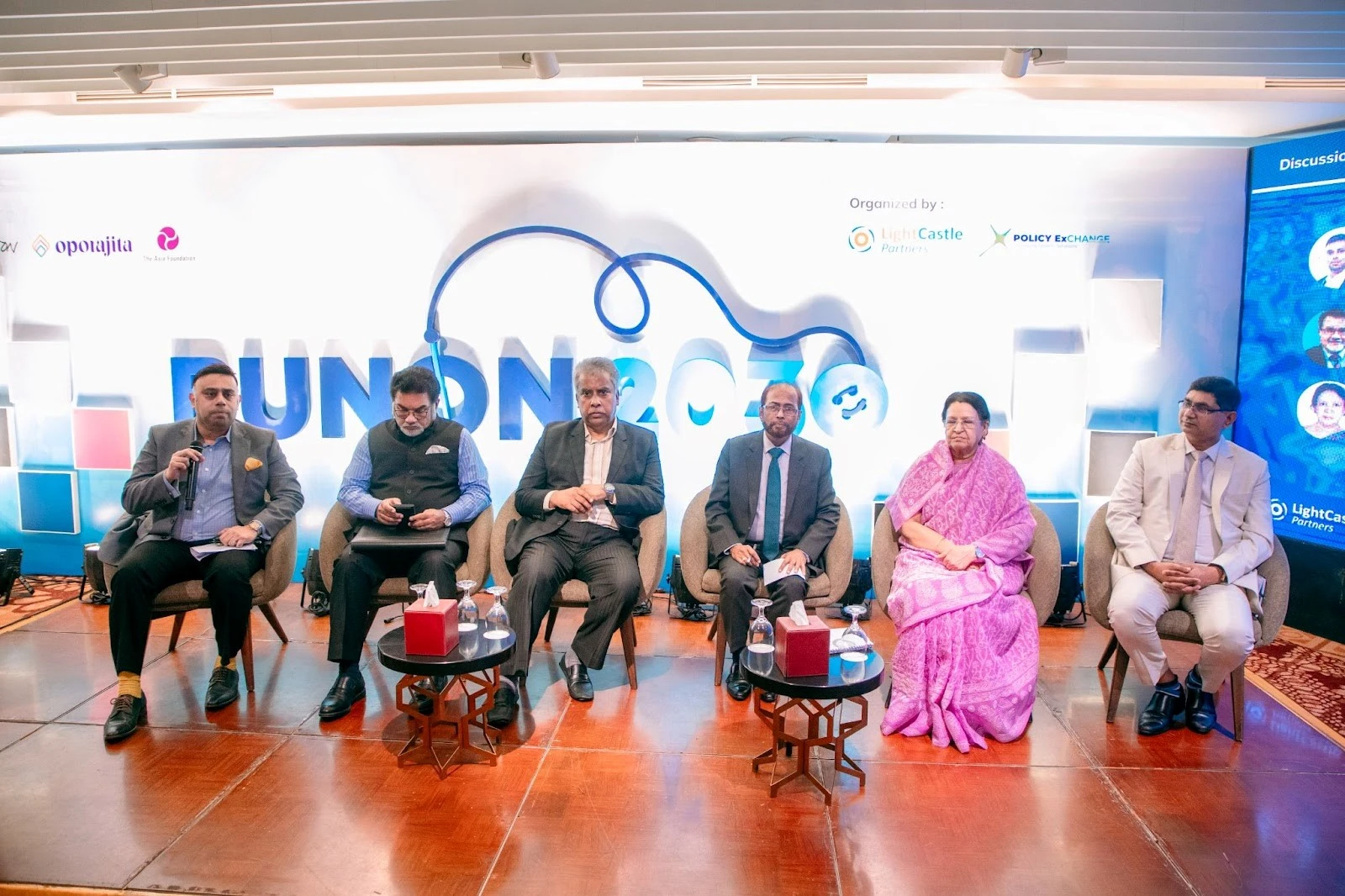
The event concluded with remarks from Faisal Bin Seraj, Country Representative of The Asia Foundation. He emphasized the significance of such dialogues for future-proofing the industry and called for continued collaborative action among stakeholders.
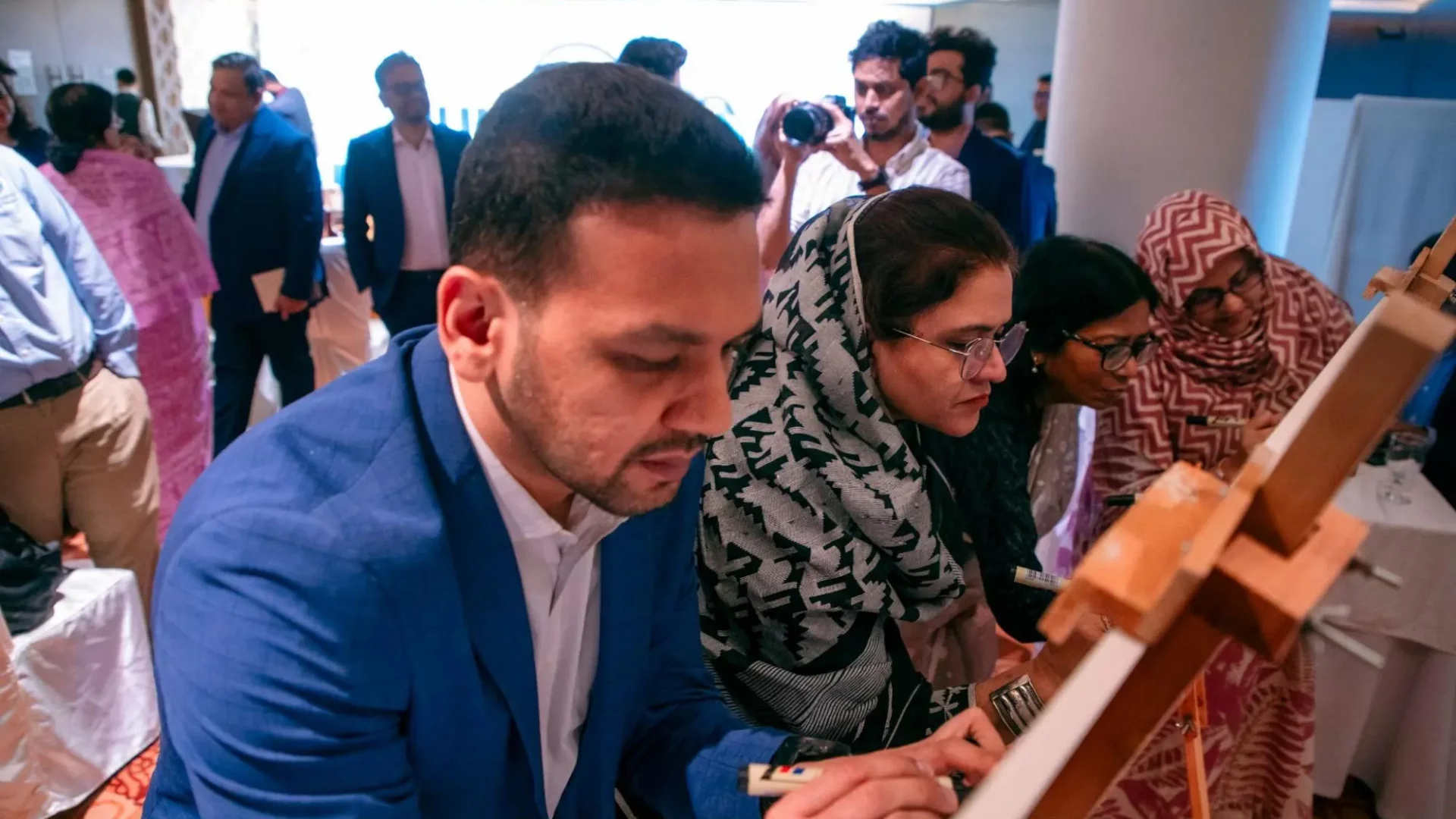
Before the event’s conclusion, participants signed a pledge board, expressing their commitment to exploring future collaborations and ensuring a sustainable future for the apparel industry. The commitment extended to helping female garment workers navigate the challenges posed by the evolving landscape of the industry.
Our experts can help you solve your unique challenges